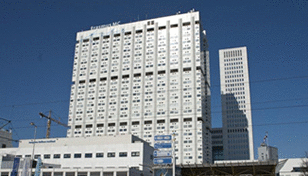Welcome.
The Erasmus MC iPS core facility has been founded to support fundamental and translational research by providing high quality iPS cell lines and embryonic stem (ES) cell lines to researchers within and outside the Erasmus MC. For Erasmus MC employees, the services of the facility are available at subsidized costs.
The potential for iPS cell-related technology in regenerative medicine is widely appreciated and iPS cell research represents one of the fastest growing research fields in the world. IPS cells can be genetically engineered and differentiated into virtually any tissue or cell type and can therefore be used to understand human disease without the requirement of the diseased tissue. In addition, differentiated iPS cells can be used for drug screening and toxicology studies. Moreover, in the long term, differentiated iPS cells will be used for transplantation purposes.
The iPS core facility has ample experience in the generation of iPS cells. From many patients and controls, iPS cell lines have been generated and delivered to researchers within and outside the
Erasmus MC. These high quality iPS cell lines are generated by experienced researchers, applying cutting edge technology according to standard operating procedures.
Besides the generation of iPS cells, the iPS core facility also provides hands-on iPS and ES cell culture training and generates and provides mouse embryonic fibroblasts (MEFs) and
cell culture reagents.
Erasmus MC iPS Core Facility has a METC approval named as 'Creation of disease model systems to understand and correct genetic disease through gene or other therapy using iPS cell derived from somatic cells: IPSC protocol Rotterdam'
Erasmus MC researchers that are willing to generate new iPSC lines from control and patient material, can use this protocol. Please contact manager of iPS Core Facility, Mehrnaz Ghazvini ( m.ghazvini@erasmusmc.nl) for more information.
-

Derivation services
The Erasmus MC iPS core facility provides all services needed to generate iPS cell lines, starting with skin biopsies, cultured fibroblasts, erythroblasts or bone marrow. Please find an overview of the service modules and fees.
-

Culture support
In case of difficulties with irradiated MEFs, culturing iPS cells, providing medium, the experienced staff of the iPS core facility can offer you culture support. Please contact Mehrnaz Ghazvini for information.
-

Request procedure
Contact the technical director, Mehrnaz Ghazvini, m.ghazvini@erasmusmc.nl. The feasibility of your request will be determined during a personal intake. After the intake, you will be asked to fill in an agreement.